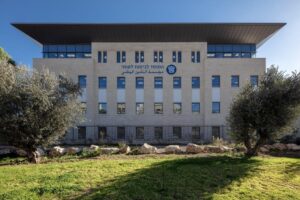A Christian Science Monitor feature this week about a centuries-old east Jerusalem soup kitchen mixes heart-warming accounts of generosity and a dose of savory food descriptions with a dash of misinformation (“Centuries-old Jerusalem soup kitchen serves up ‘food with dignity‘”).
The article misleads: “As many of the Palestinians in the Old City do not hold Israeli citizenship, they often fall through the cracks of services provided by Israel, the Palestinian Authority, and Jordan.”
In fact, Palestinian residents of Jerusalem’s Old City who do not possess Israeli citizenship receive national insurance, medical, educational and other social benefits granted by the Israeli government.
As Times of Israel reported:
Currently, there are more than 350,000 Arab East Jerusalemites, around 37 percent of the capital’s population. As permanent residents, they pay taxes and are entitled to state benefits like healthcare and social security.
The right to these benefits can be lost if residency is revoked, which happens when residents no longer maintain their center of life in Jerusalem. Such revocations affect a miniscule sliver of the population. Indeed, according to the U.S. State Department’s Report on Human Rights, just 66 Palestinian residents (representing less than 0.02 of the population) of eastern Jerusalem lost their residency in 2022. There have also been a small number of families who lost residency due to a relative’s involvement in security-related offenses.
Even the rabidly anti-Israel Institute for Palestine Studies acknowledges that Palestinian residents of eastern Jerusalem without Israeli citizenship receive National Insurance benefits:
While virtually all Palestinian Jerusalemites view the arnona [property tax] as exploitative, many believe that their payments into the Israeli National insurance system offer acceptable return benefits. Israeli policymakers often suggest that Palestinians enjoy net financial gain from these ties, especially since they make minimum payments, based on their lower wages, and receive large family allowances. Even Palestinians have occasionally supported this assumption. “Probably 95% receive more than they pay,” was how one East Jerusalem lawyer assessed the situation.[1]
In 2020, Times of Israel corrected after similarly misreporting that Arab residents of Jerusalem do not receive services from Israel’s Ministry of Health.
CAMERA has contacted Christian Science Monitor to request a correction. Stay tuned for any updates.

